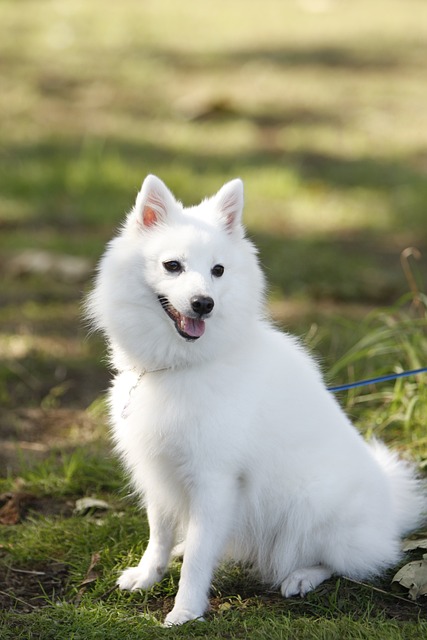


The Japanese Spitz is a small to medium-sized breed known for its striking white coat, fox-like appearance, and playful, friendly nature. With a similar appearance to the American Eskimo Dog and the Samoyed, the Japanese Spitz is energetic, intelligent, and affectionate. They are ideal companions for families and individuals alike, and their gentle disposition makes them particularly good with children and other pets. Although they are primarily kept as companion dogs, their alertness also makes them excellent watchdogs.
The Japanese Spitz was developed in Japan in the early 20th century, drawing inspiration from northern spitz-type breeds such as the Samoyed, the American Eskimo Dog, and the German Spitz. The breed was created to be a companion dog, combining the agility and alertness of northern breeds with a friendly and loving temperament. The Japanese Spitz gained popularity in Japan during the 1920s and 1930s and later spread to other parts of the world, including Asia, Europe, and North America. Despite their resemblance to other spitz breeds, the Japanese Spitz is distinct in its own right and is known for its graceful appearance and charming personality.
The Japanese Spitz is a small to medium-sized dog, typically standing between 12 to 15 inches tall at the shoulder and weighing around 10 to 20 pounds. They have a compact, sturdy build, with a well-proportioned body that gives them an agile and athletic appearance. The breed's most distinctive feature is its thick, double-layered white coat, which is soft and fluffy, giving them a cloud-like appearance. Their coat requires regular grooming to keep it looking its best, as it tends to shed heavily, especially during seasonal changes. Japanese Spitz dogs have a wedge-shaped head with pointed ears, dark almond-shaped eyes, and a thick, curled tail that rests over their back. Their expression is alert and friendly, exuding an overall sense of happiness and curiosity.
The Japanese Spitz is known for its friendly, affectionate, and playful nature. They are typically very loyal to their families and thrive on human companionship. Despite their small size, Japanese Spitz dogs are confident and energetic, often displaying a bold and curious personality. They are intelligent and eager to please, making them relatively easy to train. While they are generally good with children and other pets, early socialization is important to help them develop good manners. The Japanese Spitz can sometimes be reserved around strangers, but they are not usually aggressive. Their alertness and protective nature also make them excellent watchdogs, as they tend to be vocal when someone approaches their home.
The Japanese Spitz is an active and energetic breed that requires regular exercise to stay healthy and happy. Daily walks, along with interactive play sessions, are essential for meeting their exercise needs. They enjoy outdoor activities and thrive in environments where they have the opportunity to explore and engage in fun, stimulating activities. The Japanese Spitz has a lot of energy, so keeping them busy with games like fetch or agility training can be a great way to burn off some of their excess energy. While they enjoy playtime, they are also content to relax with their family after a good exercise session, making them adaptable to both active and more relaxed lifestyles.
Training a Japanese Spitz is generally a rewarding experience due to their intelligence and eagerness to please. They are quick learners, but they can sometimes be independent or stubborn, so consistent, positive reinforcement training is essential. This breed responds well to praise, treats, and play, making training sessions enjoyable for both the dog and owner. Early socialization is also important to ensure that they are comfortable with other animals, people, and new situations. Socialization from a young age will help prevent any tendencies toward excessive shyness or territorial behavior. With proper training and socialization, Japanese Spitz dogs can be well-behaved and confident companions.
The Japanese Spitz is generally a healthy breed, but like all dogs, they are prone to certain health conditions. Common health concerns include hip dysplasia, progressive retinal atrophy (PRA), and patellar luxation. Regular veterinary checkups, a healthy diet, and proper exercise are important for maintaining their health. Grooming is a significant part of caring for a Japanese Spitz due to their thick double coat. Brushing at least two to three times a week will help prevent mats and tangles and reduce shedding. During shedding seasons, more frequent brushing may be necessary. Regular ear cleaning, dental care, and nail trimming are also important parts of the breed's grooming routine.
The Japanese Spitz has an average lifespan of 12 to 16 years, which is typical for small to medium-sized breeds. With proper care, including regular exercise, a balanced diet, and routine veterinary visits, they can live long and healthy lives. Their relatively robust health and lively temperament make them excellent companions for many years. As they age, it's important to monitor their health for common age-related issues such as arthritis or vision problems. Ensuring that they remain active and maintain a healthy weight will contribute to their overall well-being as they grow older.
© copyright Dog Compendium 2024 - 2026